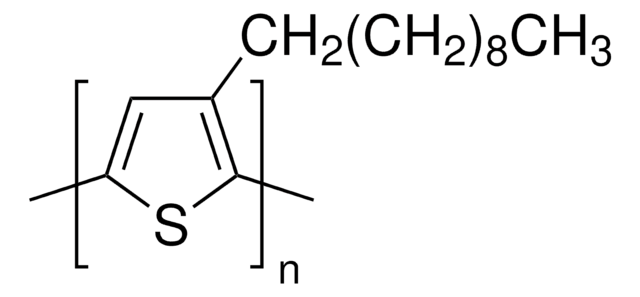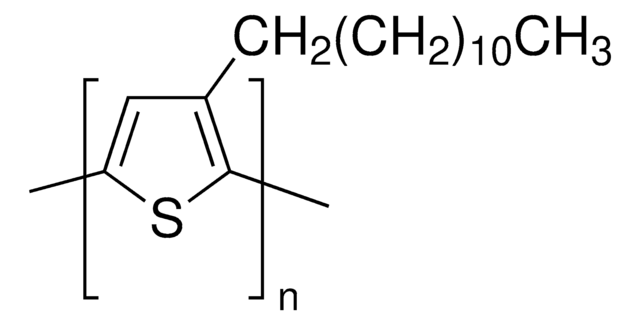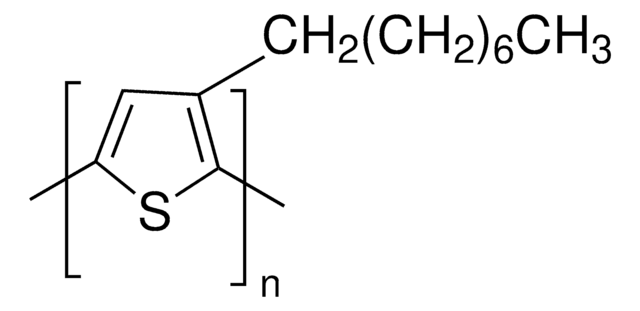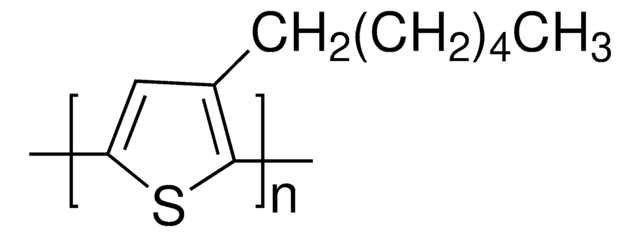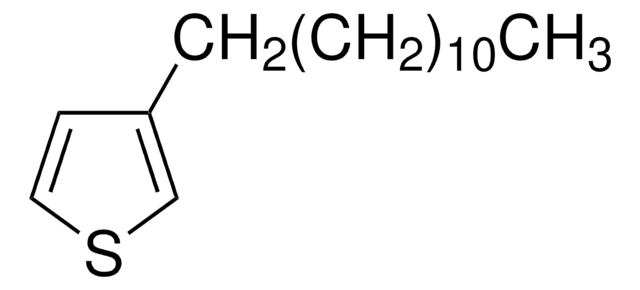510866
Poly(3-dodecylthiophene-2,5-diyl)
regiorandom
Sinónimos:
P3DDT
About This Item
Productos recomendados
mol wt
average Mn 30,000
average Mw 70,000
solubility
chloroform, methylene chloride, toluene, and THF: soluble
fluorescence
λex 416 nm; λem 545 nm in chloroform
OPV device performance
ITO/PEDOT:PSS/P3DDT/PC61BM (1:3)/LiF/Al
¿Está buscando productos similares? Visita Guía de comparación de productos
General description
Application
Rechargeable battery electrodes, electrochromic devices, chemical and optical sensors, light-emitting diodes, microelectrical amplifiers, field-effect transistors and non-linear optical materials.
Packaging
Legal Information
Rieke is a registered trademark of Rieke Metals, Inc.
Storage Class
11 - Combustible Solids
wgk_germany
WGK 3
flash_point_f
Not applicable
flash_point_c
Not applicable
ppe
Eyeshields, Gloves, type N95 (US)
Elija entre una de las versiones más recientes:
¿Ya tiene este producto?
Encuentre la documentación para los productos que ha comprado recientemente en la Biblioteca de documentos.
Artículos
Intrinsically stretchable active layers for organic field-effect transistors (OFET) are discussed. Polymer structural modification & post-polymerization modifications are 2 methods to achieve this.
Nuestro equipo de científicos tiene experiencia en todas las áreas de investigación: Ciencias de la vida, Ciencia de los materiales, Síntesis química, Cromatografía, Analítica y muchas otras.
Póngase en contacto con el Servicio técnico